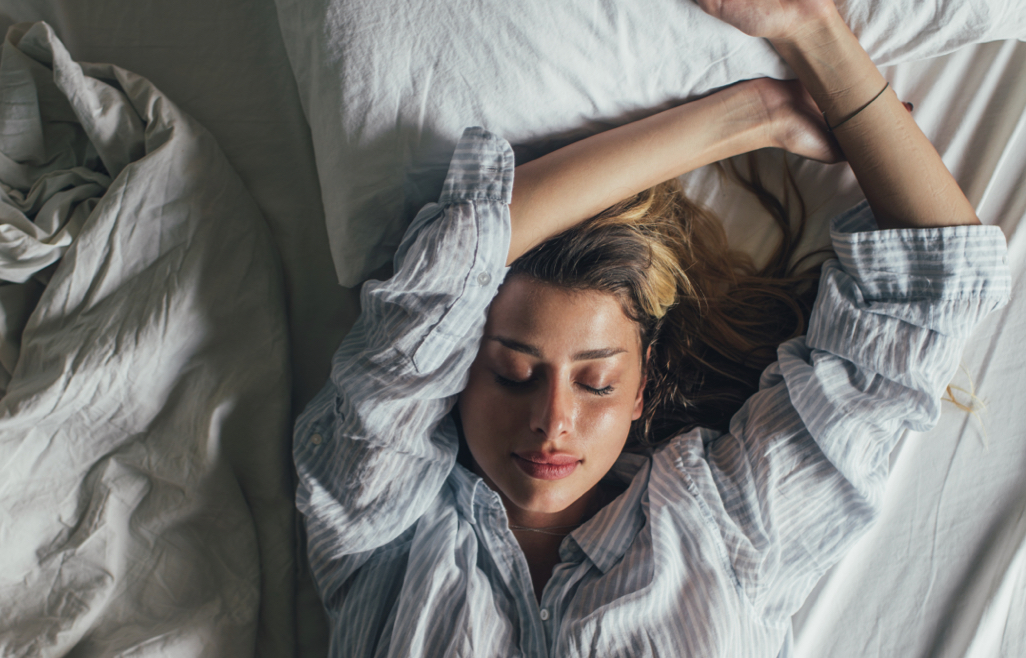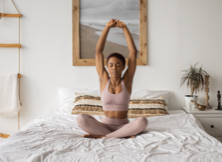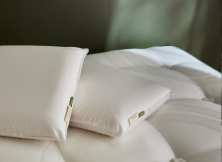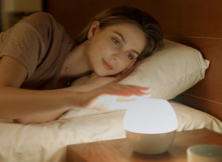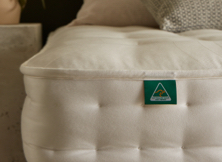Most of us have had the experience of a sleepless night. It may have been a stressful work deadline the next day that was keeping you up. Or perhaps a big event or life decision was approaching. For most of us poor sleep once in a while is something that we’ve had to endure.
But when one night turns into weeks, and weeks turn into months, suddenly sleeplessness isn’t so easy to brush off.
Research shows that 10% of adults suffer from insomnia on a regular basis, and that one-third of people will experience mild insomnia at some point in their lives. (1)
The Sleep Health Foundation defines insomnia as ‘difficulty in falling asleep, staying asleep, or a combination of the two’ (3). Insomnia results in feeling tired throughout the day, and can have disastrous consequences for a person’s physical and mental health. The causes of insomnia include stress and anxiety, taking medications, alcohol and drugs, and other causes – though sometimes the cause is still not clear.
Although the amount of sleep needed varies depending on the individual, most adults need 7 to 9 hours of sleep a night to function at their best. Sleep is the best way to recharge and rejuvenate, and equip yourself for the day ahead.
If you’re one of the many people trying to beat insomnia, there are a number of natural remedies that have been proven to help.
Try these 5 natural sleep remedies to help combat insomnia:
Meditation for insomnia
If you’re new to meditation, these steps may help.
- Sit down in a chair, sit cross-legged on the floor or lie down.
- Close your eyes and breathe slowly into your belly, focusing your attention on your breath and your body breathing.
- When your mind starts to wander away to other things, acknowledge this, and then gently bring it back to focus on your breathing.
It’s best to start meditating for five minutes at a time and gradually increase the length of the meditation as you get more comfortable with the practice. There are also a number of meditation apps if you’d prefer to be guided through the process.
Exercise
A huge amount of research has shown that exercise (Get physical and improve your sleep re-write) is beneficial to improving sleep and overcoming insomnia. Our bodies are designed to move every day, and exercise is a natural sleep aid that triggers our bodies to feel tired. Because insomnia is commonly linked with elevated arousal and anxiety, expending energy through exercise will give you more of a chance at falling asleep.
If exercise isn’t part of your daily routine, it’s always best to start with an attainable goal. Even just 20 minutes a day of light exercise helps to burn off energy and induce sleepiness (while also bringing immense health benefits). Try going for a walk with a friend, or take a beginner’s yoga or pilates class. There are many things you can do – the key is to find out what’s most enjoyable for you.
Magnesium
Taking a magnesium supplement, or using magnesium products, can potentially help you improve your sleep. Research has found that people who are deficient in magnesium are more likely to experience insomnia (1). Magnesium is one of the most common and underrated minerals on Earth – in fact, every cell and organ in the human body needs it to function. As well as being great for your overall health, magnesium aids in relaxing the brain by activating the parasympathetic nervous system – the system responsible for making you calm and relaxed. It also regulates the production of melatonin, the sleep hormone. Try taking magnesium supplements, or eating foods rich in magnesium, as a natural sedative. Avocados, legumes, nuts and leafy greens, like kale or spinach, are all packed with this essential mineral.
Eat the right foods before bed
For those suffering from insomnia, as well as those simply looking to improve their sleep, it helps to understand which foods promote sleep and which foods hinder it. A number of foods have been scientifically proven to help with sleep – for example, bananas are naturally high in potassium, tryptophan and magnesium – all minerals that are essential to achieving a deep night’s sleep. Herbal teas such as chamomile also provide a calming effect on the body.
Create the ideal environment for sleep
Our sleep environment (that is our bed, bedroom and everything in it) has a profound impact on how well we sleep, so it’s important that we turn our bedroom into a sleep sanctuary and create an environment that’s conducive to rest. Make sure your room is comfortable, dark, free of clutter and peaceful. We recommend keeping technology away from the bedroom, as the blue light emitted from devices stimulates the brain and keeps us awake. It’s also important to have a mattress that supports your spine and provides head-to-toe comfort, as well as a quality bed base, for a night of undisturbed sleep.
The easier it is to relax in your bedroom, the more likely you are to be able to clear your mind and lessen the chances of insomnia.






